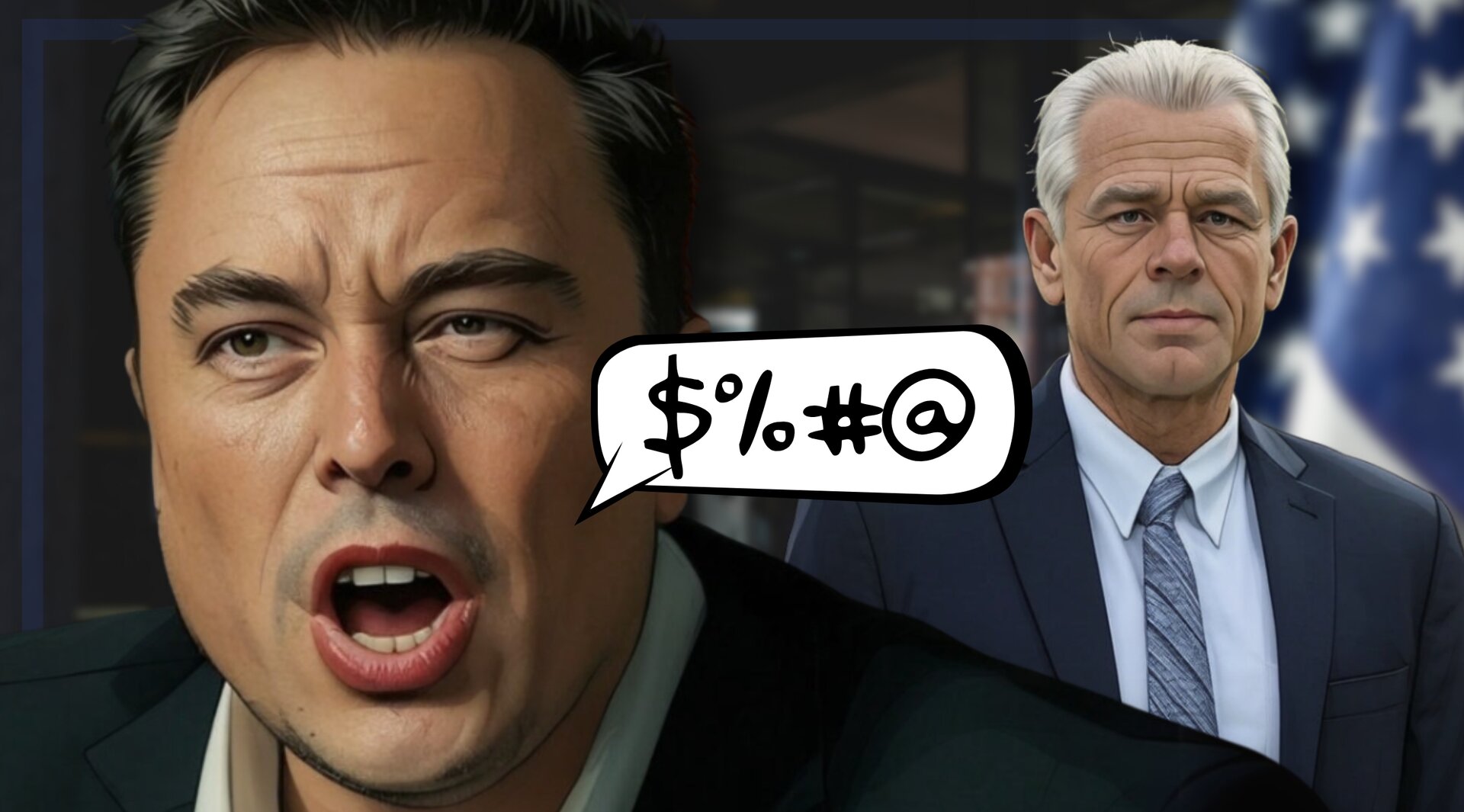One of the largest hedge funds in the world was pretending to be a religious charity until recently. Estimates of its assets range between $50 billion and more than $150 billion. As a religious charity, the hedge fund was tax-exempt for two decades, while sucking up donations from unwitting church members.
That’s because the hedge fund is owned by the Church of Jesus Christ of Latter-day Saints, otherwise known as the Mormon Church. Church members unwittingly donated to Ensign Peak Advisors (EP), a clandestine hedge fund investing their money in stocks and bonds without their knowledge.
As ordered by The Holy Bible, the church’s 17 million faithful give 10% of their income, known as a tithe, and the church takes this money and does what it likes with it. Only, after paying for operational costs, roughly $1 billion a year was routed for the last twenty years to to shell companies controlled via a fake religious charity.
However, the charity never engaged in one single charitable act. Instead, according to a whistleblower, “once the money went in, it didn’t go out.” It’s actually difficult to imagine something more despicable to do to a congregation.
For 22 years, church leaders guarded the secret, until, David Nielson, a senior portfolio manager at EP, blew the whistle, filing a report with the Internal Revenue Service (IRS).
"I thought I was gonna work for a charity. I thought that's what my skills were gonna do…was help build the charity and do good with things. And the funds were never used for that. It was really a clandestine hedge fund."https://t.co/VvC7CKHyT3
— FFRF (@FFRF) May 15, 2023
U.S. Government Offers Sweetheart Deal
Surprisingly, the IRS didn’t do anything at all, and the SEC levied a minuscule fine. And so, after 4 or 5 years, the SEC finally charged the fund with “disclosure failures and misstated filings,” asking for a measly $5 million slap on the wrist. EP agreed to pay $4 million and the Church agreed to pay $1 million.
To give an idea of how lenient that is, take, as a comparison, the fine Deutsche Bank, an inveterately criminal organization, had to pay for “slow progress” against money laundering: $186 million. The disparity is marked, due to the fact that the SEC feels entitled to the proceeds from private enterprises but not from religious organizations.
The SEC order stated, “The Church was concerned that disclosure of its portfolio, which by 2018 grew to approximately $32 billion, would lead to negative consequences. To obscure the amount of the Church’s portfolio, and with the Church’s knowledge and approval, Ensign Peak created thirteen shell LLCs, ostensibly with locations throughout the U.S., and filed Forms 13F in the names of these LLCs rather than in Ensign Peak’s name.”
“The Devil Made Me Do It”
The church blamed its attorneys for advising them to create shell companies (a.k.a. “The Devil made me do it!”), telling 60 Minutes “We don’t feel it’s being secret. We feel it’s being confidential.”
When prodded to explain the difference, the church spokesperson grew flustered, stared into the distance, and said, “It’s a point of view. ” He went on to explain that if church members knew the size of the fund, they might later try to weigh in on what should be done with the money. Clearly, that would be annoying for church leaders.
David Nielson, the whistleblower, told 60 Minutes that church leaders assured him that the money Ensign Peak controlled would come in handy for the second coming of Jesus Christ. Church leaders later told 60 Minutes that the ever-expanding mountain of assets was a “rainy day fund” to support the church.
To be fair, while being a shady “father-knows-best” way of looking at an obscene pile of cash extracted from church members, it isn’t all that different from the historically opaque financial practices of the Catholic Church. In fact, if memory serves, church businesses funded by church members were a major source of grievance when Martin Luther spurred the separation of Protestantism from Catholicism some 500 years ago. Yet today, it appears that many protestants are funding church businesses even more shameless than the sale of indulgences, which at least allegedly benefited the church members.
Don’t tell the faithful
In the case of Catholicism, the Catholic Church doesn’t receive nearly 10% from the congregation. While there are collections at Catholic mass, the money received pales in comparison on a per capita basis to what the Mormon Church receives from its congregants.
Part of this can be explained by a lack of tradition for the practice in the Catholic Church, but an equally important consideration is the feeling of ownership, or lack thereof in the Catholic faith. Dean R. Hoge, a professor at the Catholic University of America, explained why, “the heritage in Catholic thought that still hangs over people is that they are just customers and the clergy really owns the church.”
In the case of the Mormon Church, the saints are not even aware they are customers.
In February of 2020, Roger Clarke, the head of Ensign Peak, explained to the Wall Street Journal that if they had revealed the church’s $100 billion reserve, members might be tempted to stop paying tithes. Again, on some level, this makes sense.
There has been a backlash to tithing in other Christian denominations, but not the Mormons even as more and more ostentatious tokens of church wealth have publicly emerged.
Judge dismisses James Huntsman lawsuit against Mormon Church that alleges fraud, misuse of tithes https://t.co/8UkNPKp73p
— The Washington Post (@washingtonpost) September 15, 2021
Jesus wants a new mall
David Nielson felt a rising indignity as he began to discover what EP was doing with the church’s wealth. Nielson was disappointed when he saw that $1.4 billion was allocated to a mall at City Creek, located on church property. The church defended its investment citing a “vested interest” in making downtown Salt Lake City a nice place to live, claiming that the development project wasn’t paid for with tithes, at least not directly. No, it was paid for with invested tithes, which is a very important distinction, according to church lawyers.
If you’re confused by the church’s circuitous reasoning, you’re not alone. James Huntsman, a former member of the church, filed a lawsuit against the church on this very issue, but a judge tossed the lawsuit, reasoning that the church hadn’t committed fraud because the tithes were invested, first. That may have been enough for the judge, but plenty of church members found the investments problematic, including the $600 million bailout of Beneficial Life, a church-owned insurance company.
One Redditor used scripture and moral reasoning to explain, “Morally, a church putting that level of investment into a for-profit venture while they have children as members that are clinically malnourished is reprehensible – see the Bountiful Children’s Foundation. The foundation has an annual operating budget of $1M dollars. For the cost of the City Creek investment the church could have funded them for 1500 years, or doubled their operating budget while still maintaining enough invested principal to fund them for a millennium.”
Another Redditor commented, “Even as a believer, it was clear in my mind that [the investment in the mall] was a cynical move since there was no accompanying effort to alleviate the suffering for the homeless in the area. It was purely to displace them.”
The IRS just can’t
Phil Hackney, a litigator from the Office of the Chief Counsel of the IRS and an associate professor of law at the University of Pittsburgh, said the chances the IRS would investigate were “slim” because “the political risk is so great that it comes with real danger. At the same time,” he went on, “there’s a real risk to the rule of law if the IRS doesn’t come in and enforce those rules.”
And yet, there is clearly zero political will to scrutinize religious institutions in the United States, never mind reforming current regulations. It will be up to the Latter-day Saints themselves to speak up or stop forking over their tithes.
Houses of worship are merely encouraged but not required to report financial information to the IRS. Additionally, church investments in securities are not subject to capital gains. Religious organizations, large and small, routinely invest their members’ tithes in the stock market and pay zero taxes on the profits. It’s probably the path less traveled to becoming a successful investment fund manager, but it sure seems like an easier path.
Don’t Touch My Church Games
However, despite being immune to capital gains, there are certain church business practices that are considered taxable events, those defined as trade or business activities unrelated to the core purpose of the religious organization. One such category, as listed on page 19 of the IRS’ Tax Guide for Churches and Religious Organizations, is gaming.
“Most forms of gaming, if regularly carried on, may be considered the conduct of an unrelated trade or business. This can include the sale of pull-tabs and raffles.”
Seems reasonable enough. Churches probably shouldn’t be running numbers. And yet, the next sentence illustrates how arbitrary and full of strange carve-outs the U.S. tax code is: “Income derived from bingo games may be eligible for a special tax exception.”
No offense to bingo and those who play it, but why in Jesus’ name is there a carve-out for bingo? Did some Congressman insist on a bingo carve-out? You owe taxes if you hold a raffle, but none for a bingo game. Did church raffles not hire the right lobbyist?
EP may be the 3rd largest hedge fund on Earth
The total holdings of the Mormon Church are estimated at $163 billion, including stocks, bonds, real estate, hybrid investments, and private equity, but the value of EP depends on who you ask. Nobody really knows for sure.
The Widow’s Mite Report, composed of current and former Mormon professionals, estimates that the total investments of EP are worth more than $185 billion, which would put it right behind Citadel and Bridgewater Associates, the largest and second-largest hedge funds on Earth, respectively.
Churches hide behind their tax-exempt status and invest in for-profit industries with little interference from the government. Sadly, this is nothing new. An article appeared in the October 1963 issue of Christianity Today, warning of how a lax tax code is being exploited by religious organizations.
The anonymous author writes, in part, “In a nationwide study, I found that many religious denominations and their subordinate agencies have gone into competitive profit-making businesses on a large scale. Churches own radio stations, hotels, office buildings, parking lots, bakeries, and warehouses. They do contract printing, invest in stocks and bonds, and speculate in real estate. They have investments in stocks and bonds that for some major denominations run into millions of dollars.”
Now, if you’ll pardon me, I’m going to watch The Righteous Gemstones to figure out how to start a “church.”
Author: Tim Tolka, writer, journalist, and BI researcher
The editorial team at #DisruptionBanking has taken all precautions to ensure that no persons or organizations have been adversely affected or offered any sort of financial advice in this article. This article is most definitely not financial advice.















